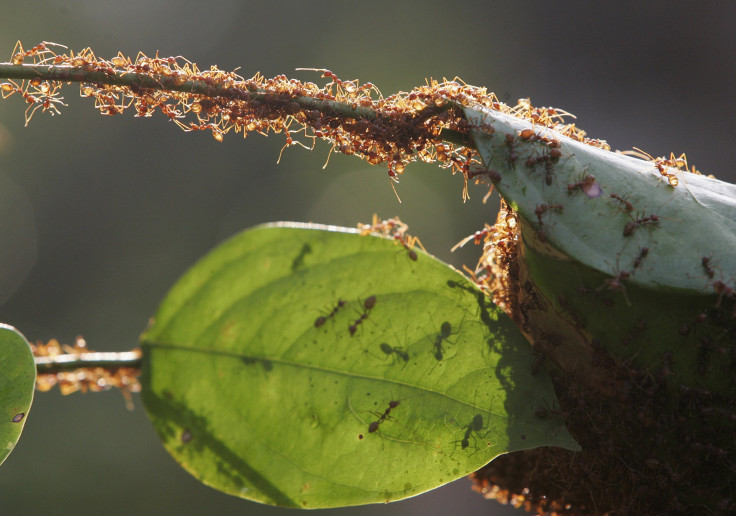University of Sydney researchers win at Young Tall Poppy Science Awards

Five young researchers from the University of Sydney have been recognised at the prestigious Young Tall Poppy Science Awards by the Australian Institute of Policy and Science.
Receiving this year’s prestigious awards were Drs. Tanya Latty, Ben Colagiuri, Camilla Whittington, Dan Johnstone and Elizabeth New, who represent the areas of agriculture and environment, psychology, biological sciences, medical sciences and chemistry, respectively.
Latty’s award-winning study explored ants and their capability to build smarter and more efficient infrastructure systems. She found that ant colonies, honey bees and slime moulds exhibit 'swarm intelligence,' where groups display intelligence far beyond the capacity of individuals. Ants, for example, run complex societies complete with transportation networks, communication systems and supply chains.
Colagiuri, on the other hand, hopes that his research on the placebo effect in pain, nausea and sleep will lead to improved methods for testing drugs in clinical trials. He also looks forward for it to help in the development of novel interventions that capitalise on the placebo effect to improve positive patient outcomes like pain relief, as well as minimise negative outcomes, such as side effects.
Using cutting‐edge techniques, Whittington sought to identify pregnancy genes in her study to determine the instructions in an animal’s DNA causing it to have a live baby rather than laying an egg. Her work identifies the fundamental processes of pregnancy. This understanding is critical to designing captive breeding programs for threatened and endangered species.
Johnstone’s research is pioneering new ways to protect the brain against intractable age‐related neurodegenerative conditions, such as Alzheimer’s and Parkinson’s diseases, using infrared light and saffron. He hopes to develop and better understand these new treatments so that they can be made available to patients.
Meanwhile, New received an award for her research involving the development of chemical tools to study biological systems. Her group is developing probes for fluorescence imaging, as well as for magnetic resonance imaging, focusing on the study of oxidative stress and metal ions in biology. These techniques will enable researchers to watch cells over time and observe how they change as they develop diseases such as Alzheimer’s or diabetes, or when they are treated with potential therapeutic drugs.
“It is exciting to be developing new tools that will help unravel biological processes, and to work with our medical research collaborators to see our tools put to good use. I’ve really enjoyed having the opportunity to share my love of science with high school students, and I look forward to continuing to do this through the Tall Poppy program,” New said.
As part of the Tall Poppy Campaign, the winners will spend a year sharing their knowledge with school students, teachers and the broader community through workshops, seminars and public lectures.
Created in 1998, the campaign celebrates Australian intellectual and scientific excellence and encourages younger Australians to follow in the footsteps of outstanding achievers. The campaign currently recognises the achievements of Australian scientists through the prestigious annual Young Tall Poppy Science Awards.
Contact the writer at feedback@ibtimes.com.au or tell us what you think below.





















